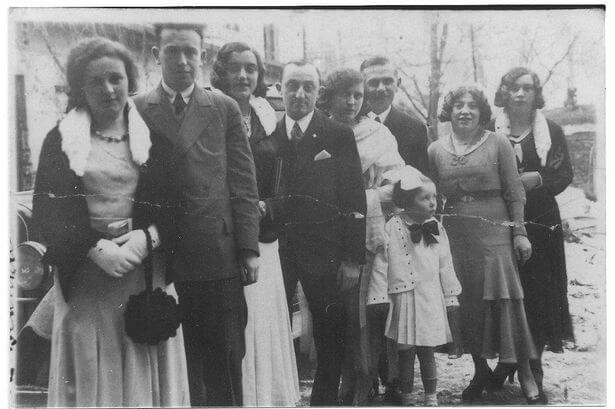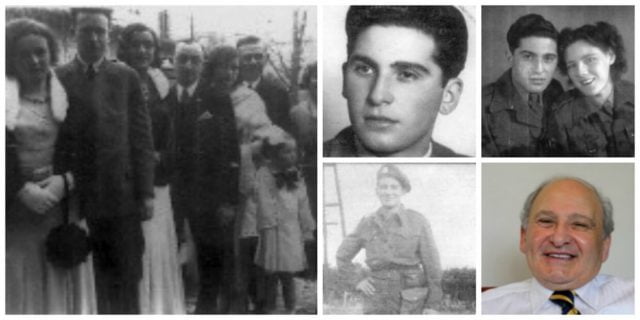By Sumedha Bansal
We have all heard of the famous term “concentration camp”. Basically, they were an integral feature of the regime in Nazi Germany between 1933 and 1939.
In literary terms, a concentration camp refers to a camp where people are detained or confined usually under harsh conditions and without regard to legal norms of arrest and imprisonment that are acceptable in a constitutional democracy.
Another most common term associated with these camps is “holocaust”. Holocaust was yet another of the heinous crime committed by the infamous Adolf Hitler during his reign in Germany. It was a genocide in which around six million European Jews were massacred.
So many Jews were tortured to death. Many were sent to the gas chambers. Many became slave laborers. Families were separated. No mercy was shown to women, children or elderly people.
There were many survivors who still suffer from the pain and separation of their families.
One such fighter was Eugene Black, a holocaust survivor and slave laborer.
His story also tells us about the despair and loneliness one feels from getting separated from his family and homeland yet he had to live his life without the two.

Eugene Black’s Story
Eugene was born in Munkacs, Czechoslovakia in 1928. He had a happy family life with 3 sisters and a brother. In November 1938 the area where Eugene’s family lived was given back to Hungary.
On 19th March 1944 German forces occupied Hungary completely. Immediately all Hungarian Jews were ordered to wear the Star of David and within ten days the Jewish population was moved into ghettos. Eugene’s house was within a ghetto area, so his family took other people into their home.
On May 14th Eugene was returning home from school. 200 yards from home, he saw a German military lorry outside the family home with his two sisters and father on board. Eugene wasn’t allowed into the house; he was forced onto the lorry with the rest of his family and other Jewish people from the ghetto.
The lorry was driven to a nearby brickyard, where the Jewish population was being forcibly gathered together. Eugene was swiftly separated from his mother and sisters, then also from his father.
After being completely shaved and then showered, he was given his number, 55546, and a striped uniform. Eugene remained at Auschwitz Birkenau for around ten days before being selected for slave labour. He was sent to Harz mountains where the Nazis used slave laborers to manufacture V1 and V2 rockets underground.
Eugene’s job here was to load small trucks with rocks dug out from the tunnels for 12 to 14 hours at a time, without rest and on starvation rations. He became increasingly weak and after five months caught pneumonia. A German doctor saved his life.
After the euphoria of liberation had worn off Eugene discovered that he had lost his entire family and he was still 17 years old. After that, he worked as a British interpreter where he met his future wife Annie. He describes Annie as his savior. Eugene moved to England in 1949 and started work with Marks and Spencer as a warehouseman. He is retired now.
In common with many survivors, Eugene is still piecing together his family’s story. In 2009 he discovered that his two sisters did not die in the gas chambers of Auschwitz as he had believed for over 60 years.
He found out that 22-year-old Paula and 20-year-old Jolan had spent three months in Auschwitz and then been selected for slave labour. The sisters were sent to Gelsenkirchen to work in a factory producing fuel for the German war effort.
The factory was bombed and 151 Hungarian Jewish women were killed, including Eugene’s two sisters. He describes it as the saddest episodes of his life but feels relieved that his sisters were together till the end.

Read More: What Happened To Hitler’s Family After World War II?
What War Does!
After reading the story, one can only think about how nasty these concentration camps could be or how these survivors live today amongst us bearing all the agony and torture they have faced.
But the thought comes later on that in those dark and gloomy days it was not only that these survivors were separated from their families but also they lost their homeland in the process.
Homeland is one in which our parents nurture us from an infant to a toddler and from a toddler to a rational adult. And in the process, they teach us the limits and boundaries of one’s religion and culture.
But if our homeland is destroyed then how can one find his or her roots attached to the place where he was born. Even though Eugene had re-established his home with his wife, but I don’t think he can ever forget those dreadful days where his native land was destroyed or his family members were killed just when he was a 17-year-old boy.
Like today most of us live in a well-educated society where our parents are providing us with all the luxuries and comforts, we have nothing to worry about, but can we imagine the life of Eugene and many others like him living in constant fear of death or getting drifted apart from their families?
His life was miserable at that age when we usually played games and did other stuff. Even though he was liberated from his hellhole, he had nothing left with him. He must have felt shattered and hopeless. He lost his family, his fatherland to war. He was stateless. No one can recognize him or his whereabouts.
This dislocation of culture because of war not only leads to loss of wealth, property but also the loss of identity, traditions at the hands of those culprits for whom war is the most normal thing in their life.
Image Credits: Google Images
Sources: Wikipedia, The Yorkshire Post, Holocaust Learning (Story source)
Other Recommendations:
Demystifier: The Asian Holocaust That Never Made The Headlines






























